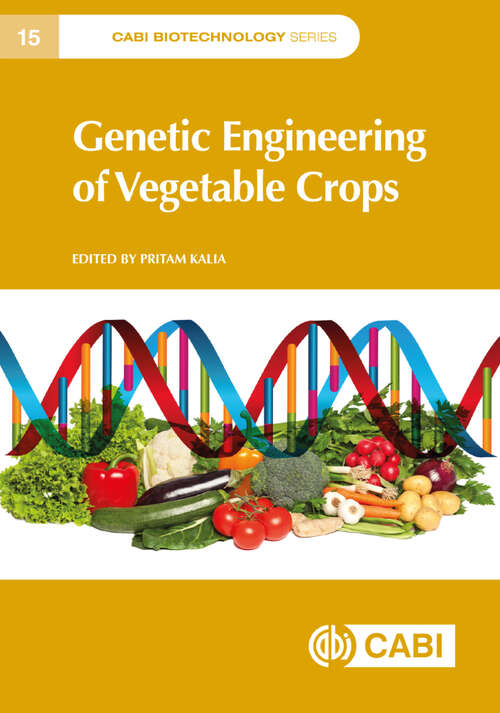Genetic Engineering of Vegetable Crops (CABI Biotechnology Series)
By:
Sign Up Now!
Already a Member? Log In
You must be logged into Bookshare to access this title.
Learn about membership options,
or view our freely available titles.
- Synopsis
- Conventional plant breeding alone can no longer sustain the rising global demand for food. Genetic engineering technology makes it possible to develop new crop varieties with improved yield performance, specific quality attributes (external and internal in vegetable crops), resistance to diseases and insect pests, and environmental stresses. Genetic engineering technology for developing GM crops is complementary to genome editing and other breeding technologies. In addition to food requirements, transgenic crops have the possibility to carry edible vaccines and therapeutic proteins, to help combat human disease and malnutrition. This book reviews the importance and safety of transgenic vegetable crops and covers a wide variety of crops and different technologies. It includes: Genetic engineering in tomato, eggplant, peppers, amaranth, cauliflower, carrot, cucurbits, potato, tropical tubers and melons. Transgenic resistance to viral diseases. Embryogenic cell suspension culture. Genome editing and CRISPR/Cas9. Molecular techniques for biofortification. RNAi strategies for vegetable crop improvement. Designing futuristic vegetable crop varieties. This book is suitable for researchers in horticulture, plant science, and agricultural biotechnology as well as practitioners in vegetable breeding and seed production.
- Copyright:
- 2025
Book Details
- Book Quality:
- Publisher Quality
- Book Size:
- 448 Pages
- ISBN-13:
- 9781800627123
- Related ISBNs:
- 9781800627109
- Publisher:
- CABI
- Date of Addition:
- 02/03/25
- Copyrighted By:
- CAB International
- Adult content:
- No
- Language:
- English
- Has Image Descriptions:
- No
- Categories:
- Nonfiction, Science, Technology, Earth Sciences
- Submitted By:
- Bookshare Staff
- Usage Restrictions:
- This is a copyrighted book.
- Edited by:
- Prof Pritam Kalia
